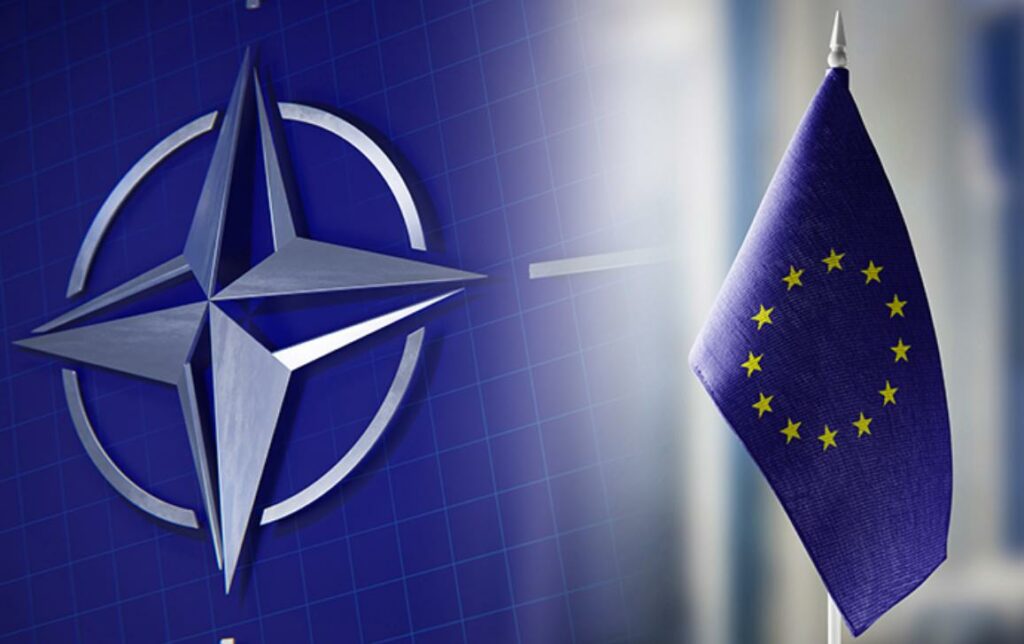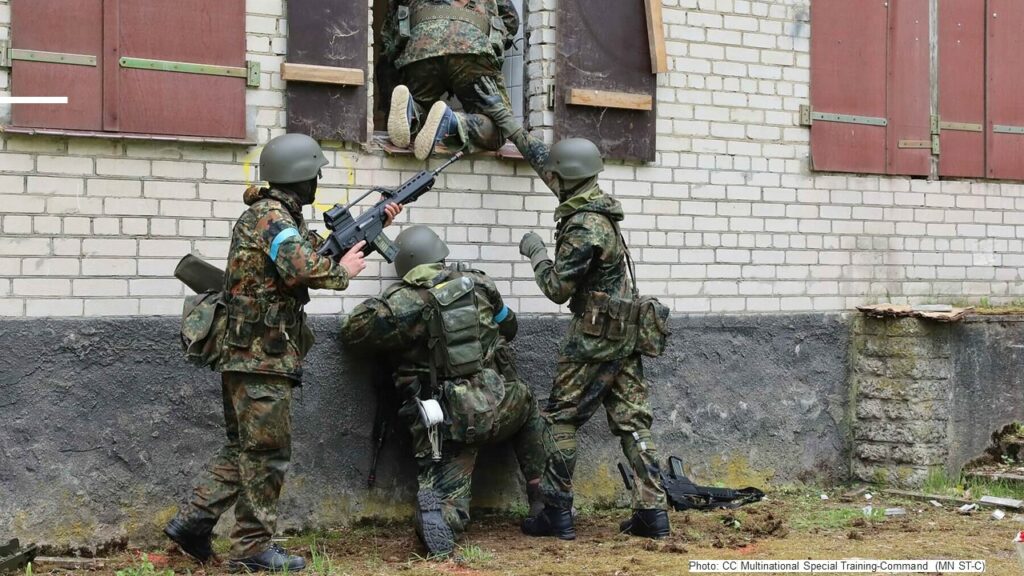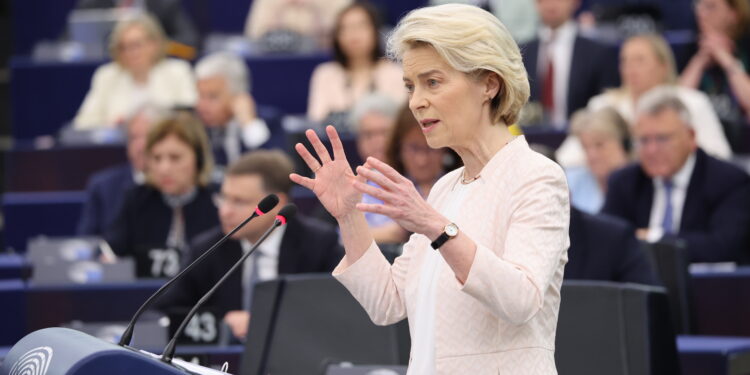Ursula von der Leyen’s second term: opportunities and concerns for European Defence
EUROMIL’s vision for a stronger European Defence
Ursula von der Leyen has been re-elected for a second term as President of the European Commission, securing her position with 401 votes in favor out of 707 total ballots cast on 18 July 2024. While EUROMIL supports von der Leyen’s plans to enhance European security by establishing a robust European Defence Union, there are significant concerns that have not been fully addressed in her strategy.
Military personnel recruitment and retention
Von der Leyen’s defence strategy involves increasing defence budgets, enhancing the European Defence Fund, and promoting common procurement initiatives to create a Single Market for defence products and services. Additionally, she proposes launching flagship projects such as a European Air Shield and improving cybersecurity measures. Strengthening the EU-NATO partnership is also a critical aspect of her plan, aiming to cover new threats and reinforce the transatlantic alliance.
Despite these comprehensive plans, von der Leyen’s strategy does not adequately address the pressing issue of military personnel recruitment and retention, which EUROMIL highlighted in our recent call to action at the NATO Summit in Washington, D.C., held in July 2024. In other words, EUROMIL emphasized that without a sufficient and highly-skilled human resource base, efforts to strengthen the defence forces and build up the necessary resources to effectively tackle today’s multiple and multifaceted challenges – that both NATO and the EU face – may fall short. Thus, EUROMIL calls for enhanced training programs, better compensation and benefits, modern work-life balance policies, promotional opportunities, and robust mental health and support services to improve recruitment and retention across Europe.
personnel recruitment and retention, which EUROMIL highlighted in our recent call to action at the NATO Summit in Washington, D.C., held in July 2024. In other words, EUROMIL emphasized that without a sufficient and highly-skilled human resource base, efforts to strengthen the defence forces and build up the necessary resources to effectively tackle today’s multiple and multifaceted challenges – that both NATO and the EU face – may fall short. Thus, EUROMIL calls for enhanced training programs, better compensation and benefits, modern work-life balance policies, promotional opportunities, and robust mental health and support services to improve recruitment and retention across Europe.
Addressing skills and labor gaps
Additionally, EUROMIL stressed the importance of involving the military in addressing skills and labor gaps, as outlined in von der Leyen’s guidelines for tackling these issues. The chapter on “Tackling the skills and labor gaps” in the Political Guidelines emphasizes the need for a Union of Skills focusing on investment, adult and lifelong learning, skill retention, and the recognition of different types of training to enable people to work across the EU. It highlights the importance of embedding lifelong learning into education and careers, supporting the training and career prospects of teachers, and improving basic skills through a STEM Education Strategic Plan. This plan aims to address the decline in performance and the lack of qualified teachers in science, technology, engineering, and mathematics (STEM) fields, and to bring more girls and women into STEM education and careers. EUROMIL argues that the military should play a crucial role in these initiatives, given its potential to offer vocational training and career development opportunities that can help close the skills gap across Europe.
The need for a comprehensive defence commissioner
Moreover, EUROMIL has been advocating for months for the appointment of a European Commissioner for Defence with comprehensive competences beyond the defence industry, especially in today’s geopolitical environment that puts security and defence at the top of the political agenda. It should also be noted that EUROMIL’s propositions and ideas are based on real needs and experiences.. For EUROMIL, the appointment of a Commissioner without a comprehensive set of competences, is a missed opportunity.
In details, the role should encompass military engagement operations, personnel management, and strategic leadership to effectively navigate modern security challenges and ensure the well-being of military personnel. A Commissioner with such an expanded mandate would be responsible not only for the industrial and procurement aspects of defence but also for the strategic oversight of military operations and the welfare of military personnel. This would involve coordinating EU-wide military training programs, addressing the  psychological and physical health needs of soldiers, and ensuring that all military personnel have access to adequate social support systems. The Commissioner would also work closely with EU member states to harmonize standards and practices across national armed forces, thereby enhancing interoperability and collective defence capabilities.
psychological and physical health needs of soldiers, and ensuring that all military personnel have access to adequate social support systems. The Commissioner would also work closely with EU member states to harmonize standards and practices across national armed forces, thereby enhancing interoperability and collective defence capabilities.
EUROMIL accepts that treaties and rules should be followed. However, the composition of the European Commission is often achieved with considerable political flexibility, so we wonder why this flexibility is not being applied in this crucial field.
In our letter to von der Leyen, forwarded soon after her re-election as a reminder of EUROMIL’s plan for the European Elections, EUROMIL reiterated the importance of human capital in building a resilient and effective European defence force. EUROMIL emphasized the right of association and collective bargaining for military personnel, aligning with the European Charter of Fundamental Rights. EUROMIL also highlighted the need for better social conditions, improved working environments, and enhanced mental health support for military personnel, which are crucial for addressing contemporary security challenges. EUROMIL also plans to remind the incoming European Parliament’s competent committees of these issues, as the Parliament will ultimately endorse the Commissioners during their hearings.
Looking ahead: acting together for European security
EUROMIL is overall satisfied with the continuity, stability, and willingness to progress in the field of security and defence with von der Leyen as President. We acknowledge the difficult obstacles ahead, such as the Russia invasion of Ukraine, the Israel-Gaza conflict, the rise of right-wing extremism in Europe, and the upcoming presidential elections in the US. However, EUROMIL stresses the importance of working and acting together for the benefit of all European citizens and workers, including those in uniform.
Finally, Emmanuel Jacob, EUROMIL’s President, emphasizes that “in the face of growing global challenges, it is imperative that we act together, leveraging every opportunity to build a stronger, more resilient European defence. Only by addressing the real needs and experiences of our military personnel can we ensure the security and prosperity of all European citizens.”
Picture: © European Union, 2024

